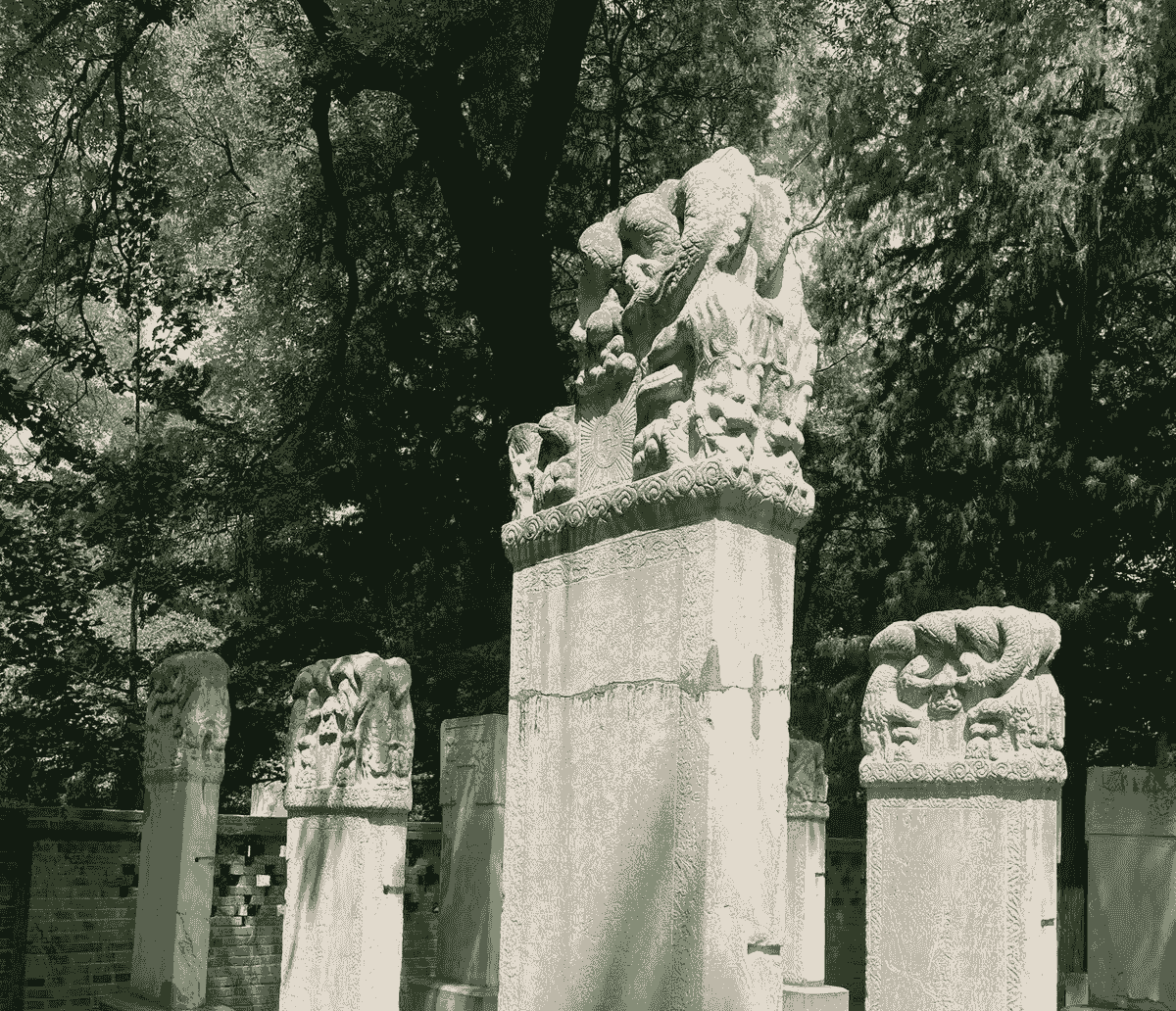


Lingua Lapidum
- …


Lingua Lapidum
- …

Lingua Lapidum
Explore the Chinese and Latin tomb inscriptions of Jesuit missionaries in the Chala Cemetery along with their English translations.
Intro to Chala Cemetery
Missions from afar and stones that remember

The Chala Cemetery in Beijing, once the garden of Ming general Teng Shunzhi, became the first Christian burial ground in the capital when Matteo Ricci was interred there in 1610 with imperial approval. Over the following centuries, it received the remains of prominent Jesuits such as Johann Adam Schall von Bell, Ferdinand Verbiest, and Giuseppe Castiglione, whose scientific and artistic service at the Qing court marked a key moment in Sino-Western exchange. Their tombs, inscribed in Chinese, Latin, and Manchu, illustrate a synthesis of cultural forms. Though the site was heavily damaged during the Boxer Uprising and experienced further upheavals in the twentieth century, it was reconstructed in the 1980s and designated a protected cultural relic. Today, the Chala Cemetery endures not merely as a burial site but as a material witness to the complex and sustained dialogue between China and Europe.
Documentation
From the West Cemetery
Huairen Nan
Ferdinand Verbiest
Father Ferdinand Verbiest, a Belgian,
having professed his vows in the Society of Jesus, lived in the Society for forty-seven years, and spent twenty-nine years on the China mission. He was sixty-six years old at his death. He died in Beijing, on the 28th of January (1688).Madou Li
Marco Ricci
Father Matteo Ricci, an Italian from Macerata, a professed member of the Society of Jesus, in which he lived for forty-two years, spending twenty-eight of them on the holy mission in China, where, when the Christian faith was being introduced for the third time, he was the first to establish residences for his companions. At last, renowned for his learning and virtue, he died in Beijing in the Year of Our Lord 1610, on the 11th day of May, at the age of fifty-nine.
Ruowang Tang
(Johann Adam Schall)
Father Johann Adam Schall, of Cologne, a professed member of the Society of Jesus,
lived in the Society for fifty-eight years, of which he spent forty-seven on the work of the Gospel in the Kingdom of China.
Summoned by the Emperor to the court, he collaborated in his studies with Giacomo Rho, and, having published many books, corrected the Chinese calendar, which, with the applause of the whole realm, he caused to be adopted. He died in Beijing in the Year of Salvation 1666, on the 15th day of August,
at the age of seventy-five.
De Nobis
Σοφίας ὁ Σύλλογος τῶν Κλασσικῶν condita est in anno MMXXIII et diversa est in partes tres. Quarum unum Aquila habet imperium. Alium Haoyu, tertiam quae ipsae lingua “Δήμη”, nostra Youxing appellatur. Hi omnes et historias et litteras coluerunt atque linguas Graecae et Latinae disputaverunt.
Credits
Inscription Translation: Haoyu Duan, Jiayi Chen, Youxing Dai
Website Design: Jiayi Chen
Introduction: Haoyu Duan
Contact Us
